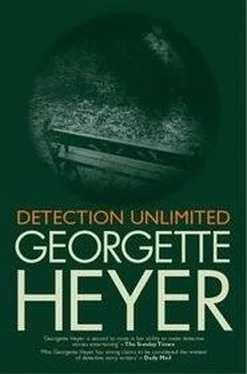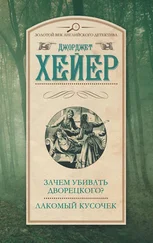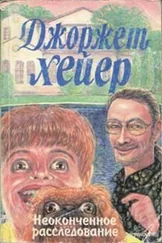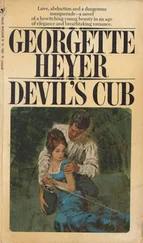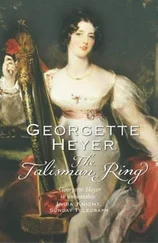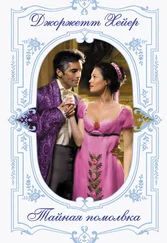Джорджетт Хейер - Detection Unlimited
Здесь есть возможность читать онлайн «Джорджетт Хейер - Detection Unlimited» весь текст электронной книги совершенно бесплатно (целиком полную версию без сокращений). В некоторых случаях можно слушать аудио, скачать через торрент в формате fb2 и присутствует краткое содержание. Год выпуска: 1953, Жанр: Детектив, на английском языке. Описание произведения, (предисловие) а так же отзывы посетителей доступны на портале библиотеки ЛибКат.
- Название:Detection Unlimited
- Автор:
- Жанр:
- Год:1953
- ISBN:нет данных
- Рейтинг книги:4 / 5. Голосов: 1
-
Избранное:Добавить в избранное
- Отзывы:
-
Ваша оценка:
- 80
- 1
- 2
- 3
- 4
- 5
Detection Unlimited: краткое содержание, описание и аннотация
Предлагаем к чтению аннотацию, описание, краткое содержание или предисловие (зависит от того, что написал сам автор книги «Detection Unlimited»). Если вы не нашли необходимую информацию о книге — напишите в комментариях, мы постараемся отыскать её.
Detection Unlimited — читать онлайн бесплатно полную книгу (весь текст) целиком
Ниже представлен текст книги, разбитый по страницам. Система сохранения места последней прочитанной страницы, позволяет с удобством читать онлайн бесплатно книгу «Detection Unlimited», без необходимости каждый раз заново искать на чём Вы остановились. Поставьте закладку, и сможете в любой момент перейти на страницу, на которой закончили чтение.
Интервал:
Закладка:
“But what good shall it do to remember monkeys?” cried Ladislas, recovering possession of his hand. “Pardon! This is not sensible, to talk of monkeys!”
“You don't understand. Three little monkeys, illustrating what I always feel is a maxim we ought to try to—”
“ I get it!” interrupted Abby triumphantly. “See no evil, Hear no evil, Speak no evil! It's all right, Ladislas: it's only a saying, or something. Come on, Mavis! If the Chief Inspector wants to talk to Ladislas, we'd better clear out!”
Ladislas looked uncertainly from Hemingway to the ladies. Mavis said that perhaps he would prefer her to remain, her voice conveying so strong a suggestion that there existed between them a beautiful understanding that he looked more frightened than ever, and made haste to disclaim any desire for her support. So Mavis began reluctantly to collect her numerous parcels, and the Chief Inspector, retrieving from under the table a paper carrier, handed it to her, saying that she seemed to have been doing a lot of shopping.
“Only mourning,” Mavis replied reverently, and with a slightly reproachful inflection. “I know it's out of date to go into mourning, but I think myself it is a mark of respect. So I asked Miss Dearham if she would go into Bellingham with me, because I didn't quite feel I could go alone—though I know I must get used to being alone now.”
As she spoke, she turned her eyes towards Ladislas, who avoided her gaze, looking instead, and with considerable trepidation, at Hemingway.
“Quite so,” said Hemingway. “Did you respect your uncle, miss?”
This direct question made her blink at him. “What an extraordinary thing to ask me!” she said. “Of course I did!”
“Do you mean really, or because he's dead?” asked Abby, unable to suppress her curiosity.
“Abby, I know you don't mean it, but I do so hate that cynical sort of talk! I was very, very fond of Uncle Sampson, and naturally I respected him.”
“Well, that interests me very much,” said Hemingway. “Because, if you don't mind my saying so, miss, you seem to be about the only person I've met who did respect him.”
“Perhaps,” she suggested, “I knew him better than anyone else did.”
“Just what I was thinking,” agreed Hemingway. “So perhaps you can tell me why he managed to get himself disliked. Now, don't say he wasn't disliked, because I know he was and you must have known it too!”
If he had hoped to startle her out of her self-possession by these bludgeon-like tactics, he was destined to be disappointed. She only looked at him in a soulful way, and said: “I always think it's such a pity to judge by exteriors, don't you? My dear uncle had lots of little foibles, but under them he had a heart of gold. People just didn't know him. Of course, he wasn't perfect—everyone has some faults, haven't they? But it's like that beautiful little verse I learned when I was at school, and made up my mind I'd try to live up to.” She signed, smiled and, to the acute discomfort of Miss Abigail Dearham, recited in a rapt tone: “"There is so much good in the worst of us. And so much bad in the best of us, That it hardly becomes any of us To talk about the rest of us."”
“Gosh!” uttered Abby, revolted. “Did they really make you learn rancid things like that at your school? Mine was much better! We used to learn really good things, like "Fair stood the wind for France", and "Edward, Edward", and "Lord Randal, my son". There was some sense in that! Come on, we must go!”
The Chief Inspector raising no objection, she then hustled Mavis out of the room, and was heard adjuring her, in the passage, not to talk such ghastly tripe, because it made everyone want to be sick.
The Chief Inspector was left confronting Ladislas, who appeared to believe that he had fallen into the hands of the Gestapo. “I can tell you nothing!” he declared, standing with his back to the wall. “It does not matter what you do to me, I can tell you nothing, for I know nothing!”
“Well, if that's so it wouldn't be any use doing anything to you,” remarked Hemingway. “Not that I was going to. I don't know what antics they get up to in Poland, but in England you don't have to be afraid of the police. Are you and Miss Warrenby going to get married, may I ask?”
“No! A thousand times no!”
“All right, all right, there's no need to get excited about it! Just a friend of yours?”
“She is most kind,” said Ladislas, more quietly, but watching him suspiciously. “I do not have many friends here. When I am presented to her, I am pleased, for she is sympathetic, she asks me about my own country, and she herself is not happy, for that one, her uncle, is a tyrant, and, like me, she does not have friends. I do not think of marriage. I swear it!”
“Her uncle was unkind to Miss Warrenby, was he?”
“But yes! She does not say so—she is very good, she makes no complaint—but I have eyes, I am not a fool! She does even the work of a servant, for it is a large house, that, and there is only one servant who is in it, living in it! Miss Warrenby has told me that when the other became married to the gardener Mr. Warrenby would not have another to replace her, for he was not generous, and he said Miss Warrenby had nothing to do, so she could do work in the house. And always she must be obedient, and she must be at home to wait on this uncle, and to be polite to his friends, but her own friends she must not have, no!”
“Didn't like her making a friend of you, in fact?” Hemingway paused, but Ladislas only glared at him. “How was that?”
“I am Polish!” Ladislas uttered bitterly.
“He didn't, by any chance, get it into his head that you wanted to marry Miss Warrenby?”
“It is untrue!”
“All right, don't get excited! Did you see Mr. Warrenby when you went to the house on Saturday?”
“No!”
“Yes, you did. What was he doing?”
Ladislas broke into impassioned speech, the gist of the torrent of words which burst from him being that if he were not a foreigner the Chief Inspector would not dare to question him, or to doubt his word.
“In my job, we get into the way of doubting people's words,” said Hemingway equably. “Besides, you've got a trick of telling first one story and then another, which confuses me. You told Sergeant Carsethorn you didn't go to Fox House, and when he didn't believe that, you said you did. You told him you went to the back-door. Which leads me to think that you knew Mr. Warrenby was in the house, because you'd seen him. I daresay you reconnoitred a bit, and I'm sure I don't blame you, for he seems to have been the sort of man no one would have wanted to meet if they could have avoided it. So now you tell me just what did happen!”
This matter-of-fact speech appeared to damp Ladislas's passion.
After staring at Hemingway for a moment, he said in a flattened voice: “When I say I did not see him, I mean—I mean—”
“You mean you did,” supplied Hemingway. “Comes of being foreign, and not being able to speak English right, I daresay.”
Ladislas gulped. “He was in his study. He was reading some papers.”
Hemingway nodded. “At his desk? You could see him from the road, easy, if that was where he was. So then, according to what you told Carsethorn, you slipped up to the back-door, which, I must say, seems to me a silly thing to have done, because, for one thing, I've seen the path which the tradesmen use, and it runs up that side of the house, so that I should have thought you'd have caught Mr. Warrenby's eye; and, for another, unless he was uncommonly deaf, I should have expected him to have heard you knocking on the back-door. However, if that's your story, I don't mind: it doesn't seem to me to matter much.”
Читать дальшеИнтервал:
Закладка:
Похожие книги на «Detection Unlimited»
Представляем Вашему вниманию похожие книги на «Detection Unlimited» списком для выбора. Мы отобрали схожую по названию и смыслу литературу в надежде предоставить читателям больше вариантов отыскать новые, интересные, ещё непрочитанные произведения.
Обсуждение, отзывы о книге «Detection Unlimited» и просто собственные мнения читателей. Оставьте ваши комментарии, напишите, что Вы думаете о произведении, его смысле или главных героях. Укажите что конкретно понравилось, а что нет, и почему Вы так считаете.
